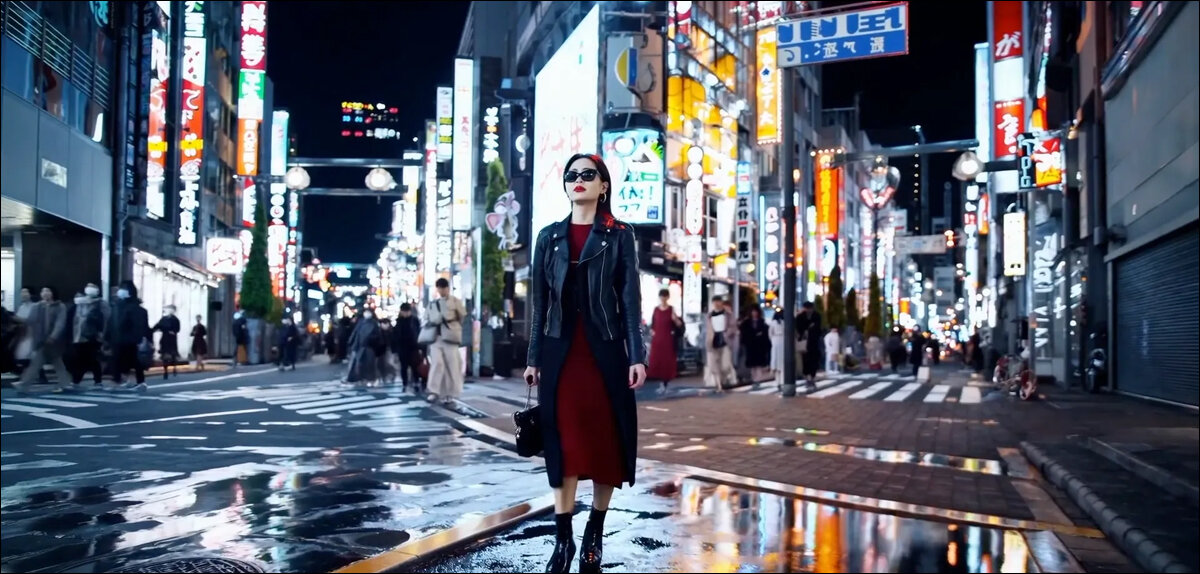The Impact of AI Video Creators on Cinema Transformation
核心概念
GenAI video creation tools like OpenAI's Sora are revolutionizing the filmmaking industry by democratizing the process and making high-quality production more accessible at a fraction of traditional costs.
要約
Generative AI tools, exemplified by OpenAI's Sora, are reshaping the landscape of cinema production. From enabling zero-budget filmmaking to creating visually stunning effects, these tools are set to transform the industry dramatically. The democratization of filmmaking through AI technology is poised to usher in a new era of creativity and accessibility in the world of cinema.
要約をカスタマイズ
AI でリライト
引用を生成
原文を翻訳
他の言語に翻訳
マインドマップを作成
原文コンテンツから
原文を表示
www.sify.com
How AI video creators like OpenAI's Sora will change cinema forever
統計
The Burly Brawl scene from Matrix Reloaded cost $40 million.
A full film with action and camerawork similar to Matrix Reloaded can now be made for less than half the budget.
Creator, a sci-fi film, had an $80 million budget but looked as expensive as Marvel films.
Zero-budget films like Local Kung Fu have been made possible with digital modes of shooting and editing.
GenAI image generation has already impacted various departments in filmmaking.
引用
"The true democratisation of filmmaking that first began with digital editing will come to fruition with this technology." - Satyen K. Bordoloi
"Even zero-budget films will look expensively mounted in a few years." - Article
"The revolution has (only just) begun." - Google's Gemini
抽出されたキーインサイト
by Satyen K Bor... 場所 www.sify.com 02-21-2024
https://www.sify.com/ai-analytics/how-ai-video-creators-like-openais-sora-will-change-cinema-forever/
深掘り質問
How might the rise of GenAI video creation tools impact traditional roles within the filmmaking industry?
The rise of GenAI video creation tools is set to revolutionize traditional roles within the filmmaking industry. One significant impact will be on screenwriters, who may need to adapt their writing styles to be more descriptive and detailed in order to provide input for AI programs generating visuals. Screenwriters could find themselves working closely with GenAI video creators to effectively convey settings and scenes through text prompts. This collaboration would blur the lines between traditional screenwriting and visual storytelling, potentially leading to a more immersive cinematic experience.
Furthermore, production designers, cinematographers, costume designers, and other departments involved in filmmaking are likely to utilize GenAI tools extensively. These tools can assist in creating images of sets, demonstrating camera angles, designing costumes, and even generating special effects at a fraction of the cost compared to conventional methods. The democratization of filmmaking that began with digital editing will reach new heights as AI technology becomes integrated into various aspects of film production.
What ethical considerations should be taken into account when using generative AI for content creation?
When utilizing generative AI for content creation in cinema or any creative field, several ethical considerations must be addressed. Firstly, there is a concern regarding intellectual property rights and copyright issues related to using AI-generated content that may resemble existing works too closely. It's crucial for filmmakers and creators to ensure that their use of generative AI does not infringe upon others' copyrights or artistic expressions.
Another important ethical consideration is transparency in disclosing whether a piece of content was entirely generated by an AI system or had human involvement in its creation process. Audiences deserve clarity about how much creative input came from humans versus machines when consuming media produced with generative AI tools.
Additionally, there are concerns about bias inherent in training data used by these systems which could perpetuate stereotypes or discriminatory representations if not carefully monitored and corrected during development phases. Filmmakers must strive for diversity and inclusivity while leveraging generative AI technologies to avoid reinforcing harmful narratives or biases unintentionally.
How can the integration of AI technology in cinema enhance storytelling capabilities beyond visual effects?
The integration of AI technology in cinema offers vast potential for enhancing storytelling capabilities beyond just visual effects. With GenAI video creation tools like OpenAI’s Sora enabling filmmakers to generate entire films based on text prompts alone, storytellers can explore new narrative possibilities without being constrained by budgetary limitations traditionally associated with elaborate productions.
Moreover, as screenplays become more detailed and descriptive due to their role as inputs for Generative AIs creating visuals directly from text prompts; filmmakers have an opportunity to delve deeper into world-building elements such as setting descriptions or character backgrounds that enrich the overall storytelling experience.
Furthermore; integrating Generative AIs specialized in special effects generation could streamline the process significantly; allowing filmmakers unprecedented access 3D environments modeled after existing footage; thereby reducing costs associated with complex CGI sequences while expanding creative horizons previously limited by financial constraints.
0
